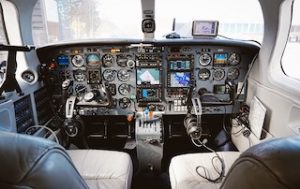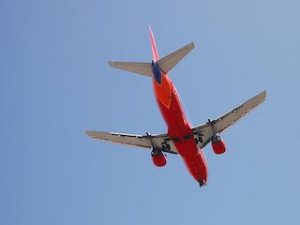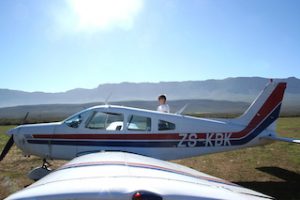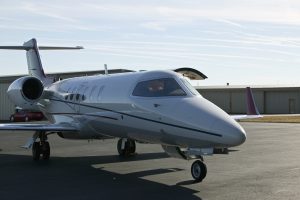Fixed Base Simulator (FBS) Training With Laminar
 Fixed Base Simulator (FBS) sessions are a cornerstone of Laminar’s rigorous training curriculum. Designed to equip pilots with the necessary skills to handle both routine and emergency situations, FBS sessions emphasize the mastery of aircraft systems and adherence to Standard Operating Procedures (SOPs). This article explores the structure, content, and key learning areas of FBS sessions, providing a comprehensive overview of their role in developing proficient pilots.
Fixed Base Simulator (FBS) sessions are a cornerstone of Laminar’s rigorous training curriculum. Designed to equip pilots with the necessary skills to handle both routine and emergency situations, FBS sessions emphasize the mastery of aircraft systems and adherence to Standard Operating Procedures (SOPs). This article explores the structure, content, and key learning areas of FBS sessions, providing a comprehensive overview of their role in developing proficient pilots.
Structure of FBS sessions
The meticulous structuring of FBS sessions ensures that pilots receive a balanced and thorough training experience. The curriculum is divided into two main phases: Sessions 1-10 and Sessions 11-12.
Sessions 1-10: Building foundations
Each of these sessions is composed of a 1-hour briefing, 2 hours of simulator training, and a 1-hour debriefing. Typically, two crews are rostered together, participating in joint briefings and debriefings. This collaborative approach allows pilots to benefit from shared insights and feedback. During the simulator training, the roles of Pilot Flying (PF) and Pilot Monitoring (PM) are rotated. This rotation ensures that all participants gain balanced exposure and experience in both critical roles, fostering a deeper understanding of each position’s responsibilities and challenges.
Sessions 11-12: Intensive training
The final two sessions involve more intensive training, with a 1-hour briefing, 4 hours of simulator time, and a 1-hour debriefing. These sessions are designed to solidify the skills learned in the earlier sessions through extended hands-on practice. Both crews engage in a 4-hour simulator detail, allowing for an immersive and exhaustive training experience. The extended simulator time in these sessions ensures that pilots are well-prepared for real-world scenarios, with ample opportunity to practice and refine their skills.
Key learning areas in FBS training
The core of FBS training at Laminar revolves around two primary areas: aircraft systems and Standard Operating Procedures (SOPs). These areas are critical for ensuring that pilots can operate their aircraft safely and efficiently, both under normal and non-normal conditions.
Mastering aircraft systems
A deep understanding of aircraft systems is fundamental to effective piloting. FBS sessions provide pilots with in-depth knowledge of the aircraft’s systems, including their functionalities and troubleshooting techniques. This comprehensive understanding is crucial for identifying and addressing any issues that may arise during flight. Pilots learn how to interpret system indicators, manage system failures, and implement corrective actions. The hands-on nature of simulator training allows pilots to practice these skills in a controlled environment, building their confidence and competence.
Adhering to Standard Operating Procedures (SOPs)
SOPs are essential for maintaining consistency and safety in flight operations. Laminar’s FBS sessions place a strong emphasis on the strict adherence to SOPs. Pilots are trained to follow established procedures for various flight phases, from pre-flight checks to landing. This training ensures that all actions are performed in a standardized manner, reducing the likelihood of errors and enhancing overall safety. By consistently applying SOPs, pilots can manage their workload more effectively and respond to unexpected situations with confidence and precision.
Benefits of FBS training
The benefits of FBS training extend beyond the acquisition of technical skills. The structured and immersive nature of these sessions provides several key advantages for pilots.
Enhanced situational awareness
One of the primary benefits of FBS training is the enhancement of situational awareness. Pilots are trained to maintain a clear and accurate understanding of their surroundings, including the status of their aircraft and external factors such as weather and air traffic. This heightened awareness is critical for making informed decisions and responding effectively to changing conditions. Through repeated practice in the simulator, pilots develop the ability to anticipate potential issues and take proactive measures to address them.
Improved decision-making skills
Effective decision-making is a crucial skill for pilots, particularly in high-pressure situations. FBS training helps pilots develop and refine their decision-making skills by presenting them with a variety of scenarios and challenges. Pilots learn to evaluate their options, weigh the potential outcomes, and select the best course of action. This process is reinforced through debriefings, where pilots receive feedback on their decisions and discuss alternative strategies. The collaborative nature of debriefings also allows pilots to learn from each other’s experiences and perspectives.
Building confidence and competence
Confidence and competence are essential attributes for any pilot. FBS training provides the hands-on practice and feedback needed to build both. By repeatedly practicing procedures and responding to simulated emergencies, pilots gain confidence in their abilities and become more adept at handling unexpected situations. The structured progression of the sessions ensures that pilots gradually build their skills, with each session building on the lessons learned in the previous one. This approach fosters a sense of achievement and preparedness, which is crucial for real-world flying.
Role of technology in FBS training
The effectiveness of FBS training is significantly enhanced by the use of advanced simulation technology. Modern simulators are designed to replicate the cockpit environment and flight dynamics with high fidelity, providing a realistic training experience.
Realistic cockpit environment
The cockpit environment in modern simulators is designed to mirror that of the actual aircraft, with accurate representations of controls, displays, and instrumentation. This realism allows pilots to familiarize themselves with the layout and operation of the cockpit, making the transition to actual flight more seamless. The tactile feedback provided by the simulator’s controls further enhances the realism, allowing pilots to develop muscle memory for various procedures.
High-fidelity flight dynamics
Simulators used in FBS training also feature high-fidelity flight dynamics, accurately replicating the behavior of the aircraft under different conditions. This includes the response of the aircraft to control inputs, the effects of weather and turbulence, and the performance characteristics of the aircraft. By experiencing these dynamics in the simulator, pilots can develop a more intuitive understanding of how the aircraft behaves, which is crucial for effective handling and maneuvering.
Importance of continuous improvement
The aviation industry is constantly evolving, with new technologies, regulations, and best practices emerging regularly. To ensure that pilots remain current and competent, continuous improvement is a key focus of FBS training.
Keeping up with technological advances
As new technologies are integrated into aircraft, pilots must be trained to understand and utilize these advancements. FBS sessions are regularly updated to incorporate the latest technologies and systems, ensuring that pilots are well-versed in their operation. This ongoing training helps pilots stay ahead of the curve and maintain their proficiency in using modern aircraft systems.
Adapting to regulatory changes
Regulatory changes are a constant in the aviation industry, with new rules and guidelines being introduced to enhance safety and efficiency. FBS training at Laminar is designed to adapt to these changes, providing pilots with the most up-to-date information and procedures. By staying current with regulatory requirements, pilots can ensure compliance and avoid potential issues during flight operations.
Embracing best practices
Best practices in aviation are continually evolving, based on lessons learned from incidents and advancements in research and technology. FBS training incorporates these best practices, providing pilots with the latest strategies and techniques for safe and efficient flying. By embracing these best practices, pilots can enhance their performance and contribute to the overall safety of the aviation industry.
Future of FBS training
Fixed Base Simulator training is an indispensable component of Laminar’s pilot training curriculum. By providing a structured, immersive, and continuously updated training experience, FBS sessions ensure that pilots are well-prepared to handle the challenges of modern aviation. The emphasis on aircraft systems and SOPs, combined with the benefits of enhanced situational awareness, improved decision-making skills, and the use of advanced technology, makes FBS training a crucial element in the development of proficient and confident pilots.
As the aviation industry continues to evolve, the importance of high-quality training cannot be overstated. FBS sessions at Laminar represent the gold standard in pilot training, setting the stage for a future where pilots are equipped with the knowledge, skills, and confidence to navigate the skies safely and efficiently. Whether dealing with routine procedures or responding to emergencies, pilots trained through Laminar’s FBS program are well-prepared to meet the demands of their profession and ensure the safety and success of their flights.










